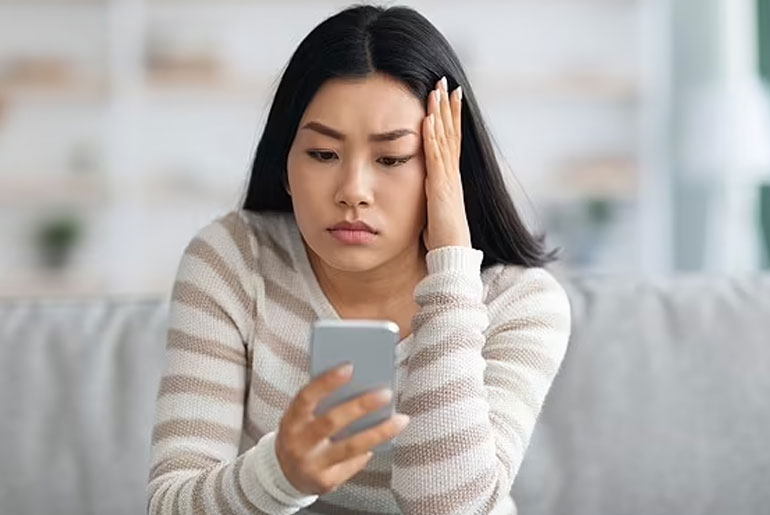Using cellphones as a barrier between ourselves and others can have negative effects on our social interactions and mental well-being. While cellphones are undoubtedly valuable tools, it’s crucial to be mindful of how we use them and ensure that they enhance our lives rather than hinder them.
“If you find that you’re using your phone in unhealthy ways, or your phone habits are causing you anxiety, try not to judge or criticise yourself. Let it be a sign that you need to set some healthy boundaries with your phone and learn some healthier coping skills to deal with your anxiety,” noted Therapist Carrie Howard.
Here are a few cellphone habits that can be anxiety:
- One common behavior is avoiding phone calls, potentially due to anxiety about dealing with others. This avoidance can hinder meaningful communication and socialization. Using a cellphone as a shield to create distance from immediate surroundings is an unhealthy coping mechanism that may contribute to isolation.
- Excessive scrolling and constantly checking notifications, especially on social media, can be a way of escaping from reality. This behavior may lead to a disconnection from the present moment and hinder authentic engagement with the world around us. The fear of missing out (FOMO) can drive the incessant need to be online, contributing to a constant state of alertness and anxiety.
- The urgency to respond immediately to messages and relying on Google for constant reassurance can be signs of underlying anxiety. The constant need for validation and the fear of not having instant answers may indicate a reliance on digital devices to manage emotional well-being.
It’s important to strike a balance in cellphone usage, promoting healthy interactions and mindful engagement with the present moment. Establishing boundaries, such as designated times for social media and phone use, can help manage anxiety and foster a healthier relationship with technology. Encouraging face-to-face interactions and being present in the moment can contribute to more meaningful connections and improved mental well-being.
Disclaimer:
The information contained in this article is for educational and informational purposes only and is not intended as a health advice. We would ask you to consult a qualified professional or medical expert to gain additional knowledge before you choose to consume any product or perform any exercise.







